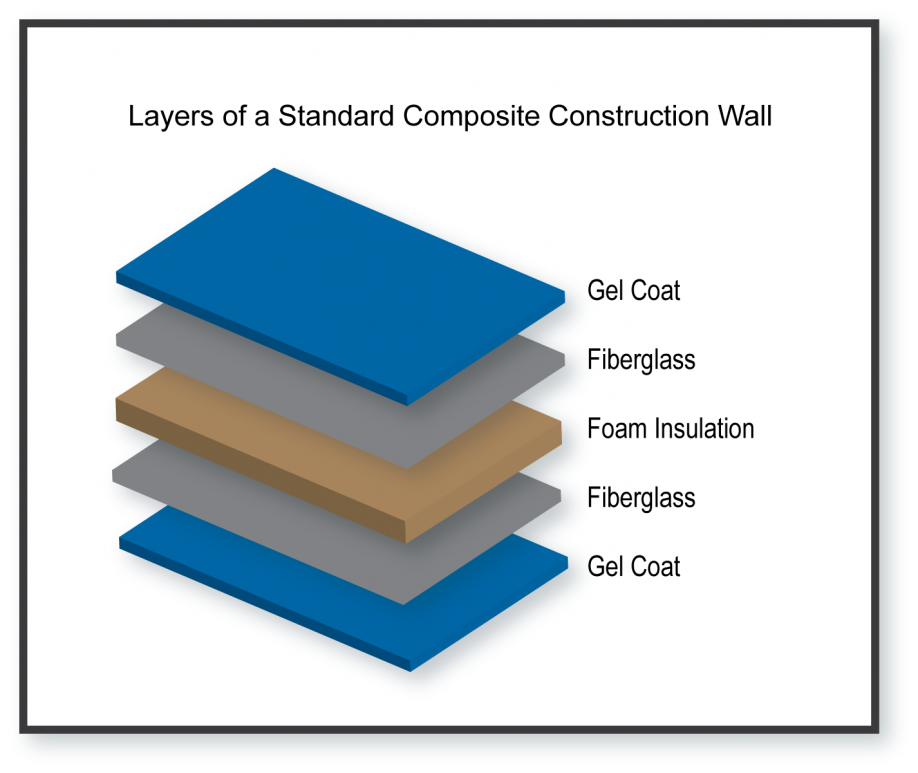Cutting-edge Composites in Modern Structure Projects
Cutting-edge Composites in Modern Structure Projects
Blog Article
The Function of Recycled Compounds: Enhancing Efficiency and Sustainability Initiatives
In today's ever-evolving landscape of products design and sustainability efforts, the usage of recycled composites has actually arised as a compelling location of passion. By taking advantage of the power of recycled compounds, companies can not just elevate their functional efficiency and product quality but likewise contribute to an extra sustainable future.
Benefits of Recycled Composites
Recycled compounds offer a lasting remedy that not only enhances efficiency but additionally minimizes ecological effect in different sectors. One of the essential advantages of utilizing recycled composites is their capacity to draw away waste from landfills. By including materials such as recycled plastics or carbon fiber into making processes, firms can lower the quantity of waste generated and promote a circular economic situation.
Furthermore, recycled composites typically show equivalent or perhaps superior mechanical residential or commercial properties to virgin materials. This suggests that products made from recycled composites can keep high performance standards while being a lot more environmentally friendly. Furthermore, making use of recycled composites can assist business satisfy their sustainability objectives and lower their carbon footprint.

Performance Advantages of Recycled Compounds
Enhancing structural stability and longevity, recycled composites offer significant efficiency advantages in various commercial applications. One considerable advantage is the boosted strength-to-weight ratio that recycled compounds offer. This property is especially critical in industries such as aerospace, automotive, and building and construction, where lightweight products that keep high stamina are very demanded.

Additionally, recycled composites provide superior fatigue resistance compared to lots of typical materials - composites. This characteristic is necessary in sectors based on cyclic loading or dynamic stress and anxieties, as it assists stop early failing and ensures lasting reliability
In addition, recycled compounds can be customized to fulfill particular performance needs by readjusting the kind and proportion of recycled materials utilized in their production process. This customization capability enables for the development of high-performance compounds that attend to the special needs of different industries, further highlighting the performance advantages of recycled compounds.
Environmental Influence of Recycled Compounds
The adoption of recycled composites in numerous markets has actually prompted a closer exam of their environmental influence. In comparison to traditional compounds, recycled composites use the advantage of drawing away waste from garbage dumps and minimizing the need for raw materials removal.
By including recycled materials right into new composite items, business can add to source conservation and waste decrease initiatives. Continued research and growth in this field are crucial to enhance the environmental performance of check here recycled compounds and breakthrough sustainable techniques across industries.
Applications of Recycled Compounds
Different industries have accepted the use of recycled compounds because of their adaptability and performance-enhancing buildings. Among the crucial applications of recycled composites remains in the automotive industry, where they are used to make light-weight components such as bumpers, indoor panels, and under-the-hood components. These composites assist lower the total weight of vehicles, enhancing fuel efficiency and reducing carbon exhausts.
In the building and construction field, recycled composites are increasingly being utilized to develop weather-resistant and long lasting building products. These materials use high strength-to-weight ratios, making them ideal for applications such as roof covering, cladding, and outdoor decking. In addition, the use of recycled compounds in infrastructure tasks, such as bridges and passages, has acquired traction because of their longevity and resistance to deterioration.
Additionally, the aerospace industry depends on recycled compounds to create aircraft elements that call for high toughness and rigidity. These composites play an important function in boosting the efficiency and gas effectiveness of airplane while minimizing maintenance expenses. Generally, the varied applications of recycled composites across sectors highlight their significant contribution to improving sustainability initiatives and improving performance requirements.
Future Expectation for Recycled Composites
With an enhancing emphasis on sustainability and innovation, the future overview for recycled compounds in numerous industries appears appealing. As firms make every effort to meet environmental goals and decrease their carbon impact, the need for lasting products like recycled compounds is anticipated to climb substantially. Industries such as vehicle, aerospace, customer, and building and construction goods are progressively transforming to recycled compounds as a result of their light-weight, durable, and environment-friendly residential properties.
In the vehicle sector, the usage of recycled composites in car production is projected to boost as car manufacturers seek to create lighter and a lot more fuel-efficient vehicles. Likewise, in the building and construction industry, there is a growing rate of interest in making use of recycled composites for infrastructure tasks to reduce waste and improve sustainability. The aerospace sector is additionally discovering the potential of recycled composites for airplane components click to find out more to improve fuel effectiveness and read more minimize exhausts.
Verdict
In conclusion, recycled composites provide many benefits in terms of performance and sustainability. They supply better toughness and toughness compared to standard products, while also decreasing ecological impact by reusing waste products. The applications of recycled compounds are huge, varying from building and construction to auto industries. Progressing, the use of recycled composites is anticipated to proceed to grow as industries and business prioritize sustainability efforts in their procedures.
In today's ever-evolving landscape of products design and sustainability campaigns, the utilization of recycled compounds has actually emerged as a compelling area of rate of interest. In comparison to traditional composites, recycled compounds supply the benefit of drawing away waste from landfills and decreasing the demand for raw products removal. By including recycled materials into new composite items, business can contribute to source preservation and waste decrease efforts.In the construction field, recycled composites are progressively being used to produce weather-resistant and resilient structure products. As business make every effort to fulfill environmental objectives and lower their carbon impact, the need for lasting materials like recycled compounds is expected to rise considerably.
Report this page